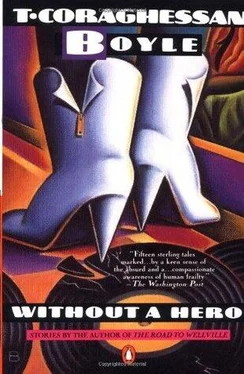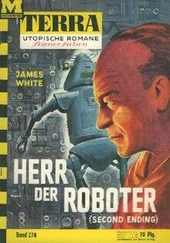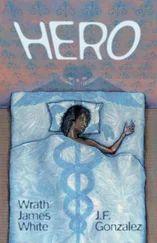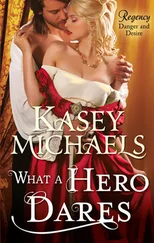T. Boyle - Without a Hero
Здесь есть возможность читать онлайн «T. Boyle - Without a Hero» весь текст электронной книги совершенно бесплатно (целиком полную версию без сокращений). В некоторых случаях можно слушать аудио, скачать через торрент в формате fb2 и присутствует краткое содержание. Год выпуска: 1995, Издательство: Penguin Books, Жанр: Современная проза, на английском языке. Описание произведения, (предисловие) а так же отзывы посетителей доступны на портале библиотеки ЛибКат.
- Название:Without a Hero
- Автор:
- Издательство:Penguin Books
- Жанр:
- Год:1995
- ISBN:нет данных
- Рейтинг книги:3 / 5. Голосов: 1
-
Избранное:Добавить в избранное
- Отзывы:
-
Ваша оценка:
- 60
- 1
- 2
- 3
- 4
- 5
Without a Hero: краткое содержание, описание и аннотация
Предлагаем к чтению аннотацию, описание, краткое содержание или предисловие (зависит от того, что написал сам автор книги «Without a Hero»). Если вы не нашли необходимую информацию о книге — напишите в комментариях, мы постараемся отыскать её.
Greasy Lake
People
Without a Hero
The Philadelphia Inquirer
Without a Hero — читать онлайн бесплатно полную книгу (весь текст) целиком
Ниже представлен текст книги, разбитый по страницам. Система сохранения места последней прочитанной страницы, позволяет с удобством читать онлайн бесплатно книгу «Without a Hero», без необходимости каждый раз заново искать на чём Вы остановились. Поставьте закладку, и сможете в любой момент перейти на страницу, на которой закончили чтение.
Интервал:
Закладка:
But then, who was counting?
The following weekend, my Aunt Marion died. Or “passed on,” as my mother put it, a delicate euphemistic phrase that conjured up ethereal realms rather than the stark black-and-white image of damp soil and burrowing insects. My mother was in New York, I was in Los Angeles. And no, I wasn’t flying in for the funeral. She cried briefly, dryly, and then hung up.
I was twenty-five at the time, a graduate of an indifferent university, a young man who went to work and made money, sought the company of young women and was perhaps too attached to the friends of his youth, Jamie in particular. I listened to the silence a moment, then phoned Janine and asked her to dinner. She was busy. What about tomorrow, then? I said. She planned to be busy then, too.
I hadn’t laid eyes on my Aunt Marion in ten years. I remembered her as a sticklike woman in a wheelchair with an unsteady lip and a nose that overhung it like a cutbank, a nose that wasn’t qualitatively different from my mother’s and, in the fullness of generation, my own. Her death was the result of an accident — negligence, my mother insisted — and already, less than twenty-four hours after the fact, there was an attorney involved.
It seemed that Aunt Marion had been on an outing to the art museum with several other inmates of the nursing home where she’d been in residence since Nixon’s presidency, and the attendant, in placing her at the head of the ramp out back of the museum dining hall, had failed to properly set the brake on the back wheels of her chair. Aunt Marion suffered from some progressive nervous disorder that had rendered her limbs useless — she was able to control her motorized chair only through the use of a joystick which she gripped between her teeth, and even then only at the best of times. Left alone at the summit of the ramp while the attendant went off to fetch another patient, Aunt Marion felt her chair begin to slip inexorably forward. The chair picked up speed, and one of the two witnesses to the accident claimed that she’d bent her face to the controls to arrest it, while the other insisted she’d done nothing at all to save herself, but had simply glided on down the ramp and into eternity with a tight little smile frozen to her face. In any case, there was blame to be assigned, very specific and undeniable blame, and a cause-and-effect reaction to explain Aunt Marion’s removal from this sphere of being, and, in the end, it seemed to give my mother some measure of comfort.
Try as I might, though, I couldn’t picture the face of Aunt Marion’s death. My own blood was involved, my own nose. And yet it was all somehow remote, distant, and the death of Renaldo the Great stayed with me in a way Aunt Marion’s could never have begun to. I don’t know what I wound up doing that weekend, but in retrospect I picture the Coast Highway, an open convertible, Jamie, a series of bars with irradiated decks and patios, and women who were very much alive.
Janine passed into oblivion, as did Carmen, Eugenie and Katrinka, and Jamie went off to explore the wide bleeding world. He spent the next eight months dredging the dark corners of countries whose names changed in the interim, the sort of places where people died in the streets as regularly as flowers sprang through the soil and pigeons fouled the monuments to the generalissimo of the month. I worked, I turned over money. Somebody gave me a cat. It shat in a box under the sink and filled the house with a graveyard stink.
Jamie had been back two months before he called to invite me to a party in the vast necropolis of the San Fernando Valley. He’d found a job inculcating moral awareness in the minds of six- and seven-year-olds at the Thomas Jefferson Elementary School in Pacoima five days a week, reserving the weekends for puerile thrills. I didn’t realize how much I’d missed him until I saw him standing there on the landing outside my apartment. He looked the same — rangy, bug-eyed, a plucked chicken dressed in surfer’s clothes — but for his nose. It was inflamed, punished, a dollop of meat grafted to his face by some crazed body snatcher. “What’s with the nose?” I said, dispensing with the preliminaries.
He hesitated, working up to a slow grin under the porch light. “Got in a fight in this bar,” he said. “Some dude bit it off.”
They’d sewed the tip of his nose back in place — or almost in place; it would forever be canted ever so slightly to the left — but that wasn’t what excited him. He moved past me into the living room and fumbled around in his pocket for a minute, then handed me a series of snapshots, close-ups of his face shortly after the operation. I saw the starched white sheets, the nest of pillows, Jamie’s triumphant leer and an odd glistening black line drawn across the bridge of his nose where the bandage should have been. The photos caught it from above, beneath, head-on and in profile. Jamie was looking over my shoulder. He didn’t say a word, but his breathing was quick and shallow. “So what is it?” I said, swinging round on him. “What’s the deal?”
One word, succulent as a flavored ice: “Leeches.”
“Leeches?”
He held it a moment, center stage. “That’s right, dude, latest thing. They use them to bring back the tiny blood vessels, capillaries and whatnot, the ones they can’t tie up themselves. It’s the sucking action,” and he made a kissing noise. “Suck, suck, suck. I wore them around for three days, grossing the shit out of everybody in the hospital.” He was looking into my eyes. Then he shrugged and turned away. “They wouldn’t let me take them home, though — that was the pisser.”
The party consisted of seven people — three women and four men, including us — sitting around a formal dining-room table eating carnitas and listening to inflammatory rap at a barely audible volume. The hosts were Hilary and Stefan, who had a house within hearing distance of the Ventura Freeway and taught with Jamie in Pacoima. Hilary’s sister, Judy, was there, the end product of psychosomatic dieting and the tanning salon, along with her friend Marsha and a man in his forties with sprayed-up hair and a goatee whose name I never did catch. We drank Carta Blanca and shots of Cuervo Gold and ate flan for dessert. The general conversation ran to Jamie’s nose, leeches, bowel movements and death. I don’t know how we got into it exactly, but after dinner we gravitated toward a pair of mallowy couches the color of a Haas avocado and began our own anthology of final moments. I came back from the bathroom by way of the kitchen with a fresh beer, and Judy, sunk into her tan like something out of a sarcophagus at Karnak, was narrating the story of the two UCLA students, lovers of nature and of each other, who went kayaking off Point Dume.
It was winter, and the water was cold. There’d been a series of storms bred in the Gulf of Alaska and the hills were bleeding mud. There was frost in the Valley, and Judy’s mother lost a bougainvillea she’d had for twenty years. That was the fatal ingredient, the cold. The big sharks — the great whites — generally stayed well north of the Southern California coast, up near the Bay Area, the Farallons and beyond, where the seals were. That was what they ate: seals.
In Judy’s version, the couple had tied their kayaks together and they were resting, sharing a sandwich, maybe getting romantic — kissing, fondling each other through their wet suits. The shark wasn’t supposed to be there. It wasn’t supposed to mistake the hulls of their kayaks for the silhouette of two fat rich hot-blooded basking seals either, but it did. The girl drowned after going faint from blood loss and the chill of the water. They never found her lover.
“Jesus,” the older guy said, throwing up his hands. “It’s bad enough to have to go, but to wind up as sharkshit—”
Читать дальшеИнтервал:
Закладка:
Похожие книги на «Without a Hero»
Представляем Вашему вниманию похожие книги на «Without a Hero» списком для выбора. Мы отобрали схожую по названию и смыслу литературу в надежде предоставить читателям больше вариантов отыскать новые, интересные, ещё непрочитанные произведения.
Обсуждение, отзывы о книге «Without a Hero» и просто собственные мнения читателей. Оставьте ваши комментарии, напишите, что Вы думаете о произведении, его смысле или главных героях. Укажите что конкретно понравилось, а что нет, и почему Вы так считаете.











